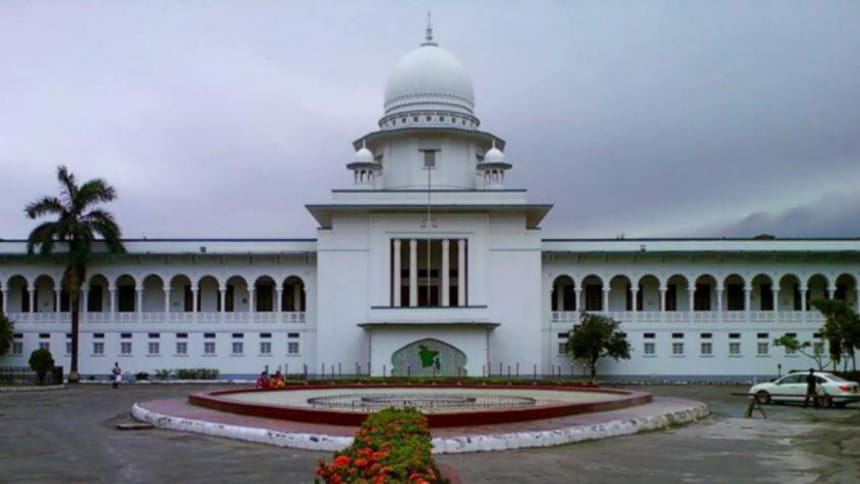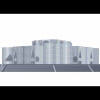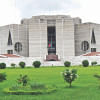HC scraps 16th amendment

The High Court today scrapped the 16th amendment to the constitution that empowered the parliament to impeach Supreme Court judges for incapacity or misconduct.
ALSO READ: Bangladesh cabinet approves draft law to probe misconduct
Terming the amendment law "merely a historical accident", the court declared it illegal, unconstitutional and against the principle of separation of powers and the independence of the judiciary.
The three-member Supreme Judicial Council led by the chief justice, which had been abolished through the law, is the best way for removing a judge for incapacity or misbehavior, the HC observed.
A three-member special bench led by Justice Moyeenul Islam Chowdhury delivered the verdict by majority view following a writ petition that challenged the legality of the 16th constitutional amendment.
Other two judges of the bench are: Justice Quazi Reza-Ul Hoque and Justice Md Shraful Kamal.
The HC bench however gave a certificate to the government so that it can directly move an appeal before the Appellate Division of the Supreme Court challenging today's HC verdict without its permission.
Manzill Murshid, lawyer of the writ petitioners, told The Daily Star that the Supreme Judicial Council, a body formed by the chief justice and two senior most Appellate Division judges, has been reinstated following the HC verdict.
After the ruling, Attorney General Mahbubey Alam told The Daily Star that the government will move an appeal before the Appellate Division.
Delivering the verdict, the HC bench observed that there is a public perception that the independence of the judiciary will be damaged due to the 16th constitutional amendment, as the members of parliament might have control over the judges.
It said the members of parliament of the country cannot vote beyond his or her party decision under Article 70 of the constitution, and he or she has to support the party even though he or she does not feel it correct.
Article 70 says, "A person elected as a member of Parliament at an election at which he was nominated as a candidate by a political party shall vacate his seat if he resigns from the party; or votes in Parliament against that party; but shall not thereby be disqualified for subsequent election as a member of Parliament".
In this situation, a judge might be loyal to the members of parliament and the independence of judiciary will be damaged, the HC said.
Turning down the arguments of Attorney General Mahbubey Alam and Additional Attorney General Murad Reza who said that parliaments of some countries including the USA and UK are empowered to impeach judges for misconduct or incapacity, the HC said the members of parliament of those countries and the members of parliament of Bangladesh should not be considered similar.
The members of parliaments of those countries can function independently, as they do not have any rule like Article 70 of Bangladesh Constitution, the HC said.
The House led by the Awami League on September 17, 2014 unanimously passed the 16th amendment and regained the power available in the 1972 constitution to impeach judges.
Earlier, SC judges were removed by the president following the recommendation by the Supreme Judicial Council, a body formed by the chief justice and two senior most Appellate Division judges.
On November 5, 2014, nine SC lawyers, including Asaduzzaman Siddique, Aklas Uddin Bhuiyan and Sarwar Ahad Chowdhury, filed the petition, saying that the amendment might have been motivated from a "malafide" intention and the judges might feel at risk before passing an order against a lawmaker.
Four days later, the HC issued a rule upon the government asking it why the amendment should not be declared unconstitutional and annulled.

 For all latest news, follow The Daily Star's Google News channel.
For all latest news, follow The Daily Star's Google News channel. 








Comments